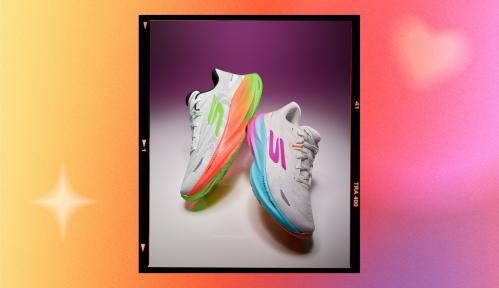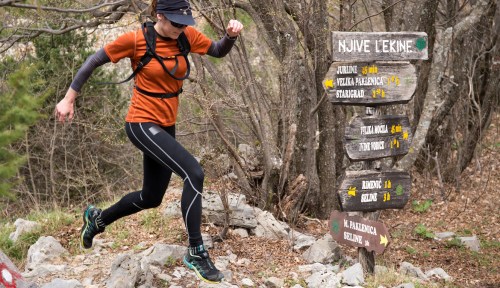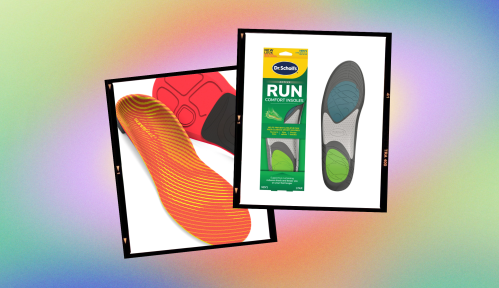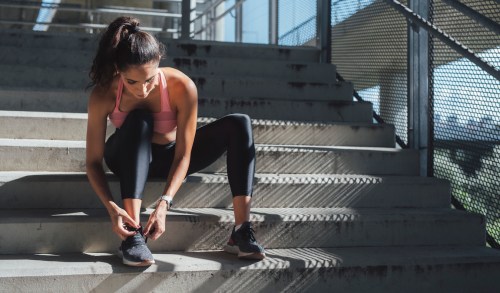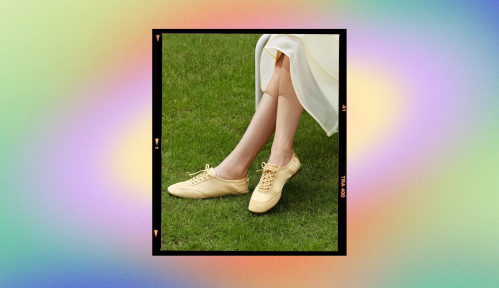Our editors independently select these products. Making a purchase through our links may earn Well+Good a commission
Yes, You Can Recycle Your Old Running Shoes. Here’s How To Give Them a Second Life
Learn where you can recycle running shoes at no cost to you—either in person or by shipping them in the mail (for free).
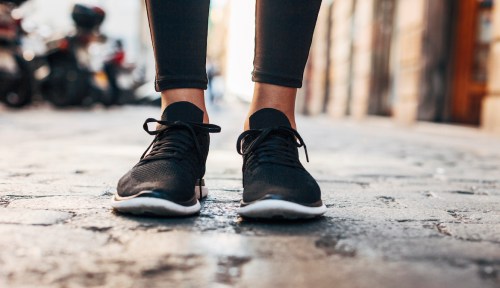
The durability of running shoes is usually a selling point. But when they’re sitting in a landfill, where the vast majority of sneakers end up, they become an environmental liability: The EVA (ethylene-vinyl acetate) found in many running shoe midsoles can take up to literally a thousand years to decompose. The rest of the shoe can take around 30 to 40 years.
But running shoes can be complex to recycle, since they are often made of up to 10 to 15 different materials, and runners usually make the mistake of believing that once shoes are no longer safe to run in, they’re useless. The good news: Many used running shoes can be donated, as they are often still perfectly walk-able, and opportunities to recycle them are ever-increasing.
Ways to recycle or repurpose your old running shoes
Sneaker Impact
The organization Sneaker Impact wants to make it easy for runners to give their shoes new life: Simply request a Recycling Bag, and send your shoes back to be repurposed or recycled at no cost to you. (Sneaker Impact does request that you wait until you have five or six pairs to donate at once, to lower their shipping costs and footprint.) You can also request a Sneaker Impact bin to collect shoes at an event or race.
Don’t worry if your shoes are dirty, or even if they need new laces or have a hole in the upper, says founder Moe Hachem: All shoes will be cleaned and refurbished before being sent to developing countries where they will be sold by local entrepreneurs. Any shoes Sneaker Impact receives that are too worn to be reused will be recycled via a company that turns trash into renewable energy. But Hachem says that as long as the soles are in decent condition, the shoes are probably salvageable—runners provide Sneaker Impact with the best-quality shoes, he says, since what is considered a worn-out running shoe still generally has a lot of life left in it for non-runners.
Nike’s Reuse-a-shoe program
Count Nike among the brands where your shoe can end up right back where it started. Participating stores collect used athletic shoes in all conditions as part of the Nike Grind program, which uses old clothes, shoes, and other materials to make new Nike products as well as sports surfaces and more. (Some locations also collect and recycle athletic apparel as well as non-Nike brand shoes—get in touch with your local store to see what they accept.)
On Running
On Running’s innovative Cyclon program offers a new approach to running shoes and sustainability: Instead of buying the Cyclon shoes (which happen to be made of castor beans), you rent them for a monthly fee. Once you’ve worn them out (and after a minimum of six months), send them back and On will send you a new pair, and will recycle the old ones to make new products.
Your local running store
Many local running stores and organizations collect used shoes in partnership with donation or recycling programs. Reach out to see if they’ll take your shoes, and where they’ll go.
Other donation programs
Dozens of other programs across the country—like Share Your Soles, One World Running, Soles4Souls, Recycle for Change, and Sneakers4Good—accept gently worn shoe donations. Some accept donations via mail, others have bins at stores like The North Face and DSW. There’s also Give Back Box, which works with brands like Asics and REI to encourage people to reuse the box their online orders arrive in by filling it with items to be donated (including gently-used shoes).
Another strategy: Buy eco-friendly running shoes
In addition to purchasing running shoes from brands that run their own recycling programs (like Hylo, which also accepts non-Hylo trainers), you can also aim to buy shoes that are made (somewhat) more sustainably in the first place: Some, like Allbirds and Reebok’s Floatride Energy Century Grow, are made with natural materials; others, like Merrell’s Antora 2 Eco Dye and Nike’s Pegasus Turbo Next Nature are made with recycled materials. Salomon’s new Index 02 is even designed to to be disassembled after it’s worn out to make recycling (which Salomon takes care of) easier.
Sign up for the Well+Good SHOP Newsletter
Get exclusive deals on wellness, beauty, fitness, and food products that have been hand-picked by our editors.
Got it, you've been added to our email list.
